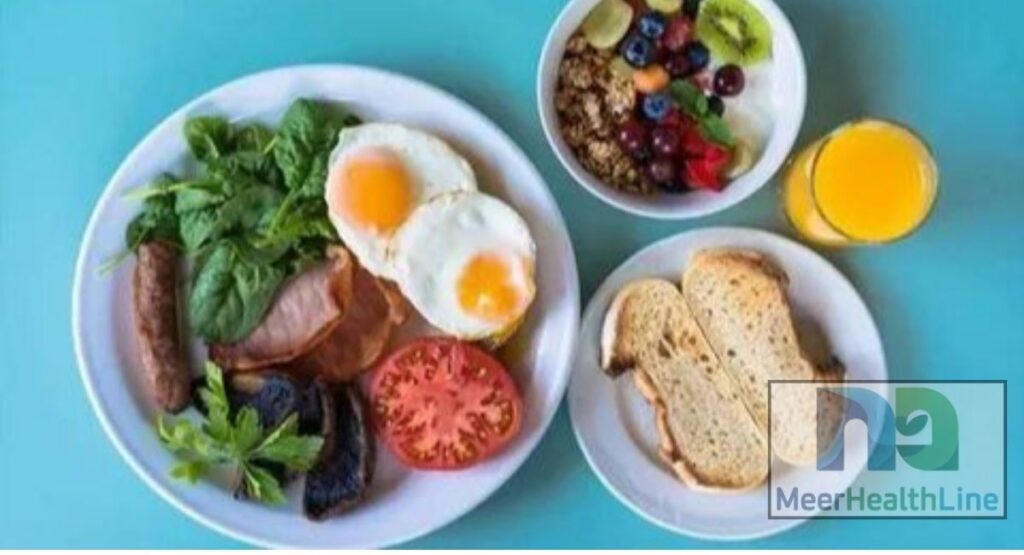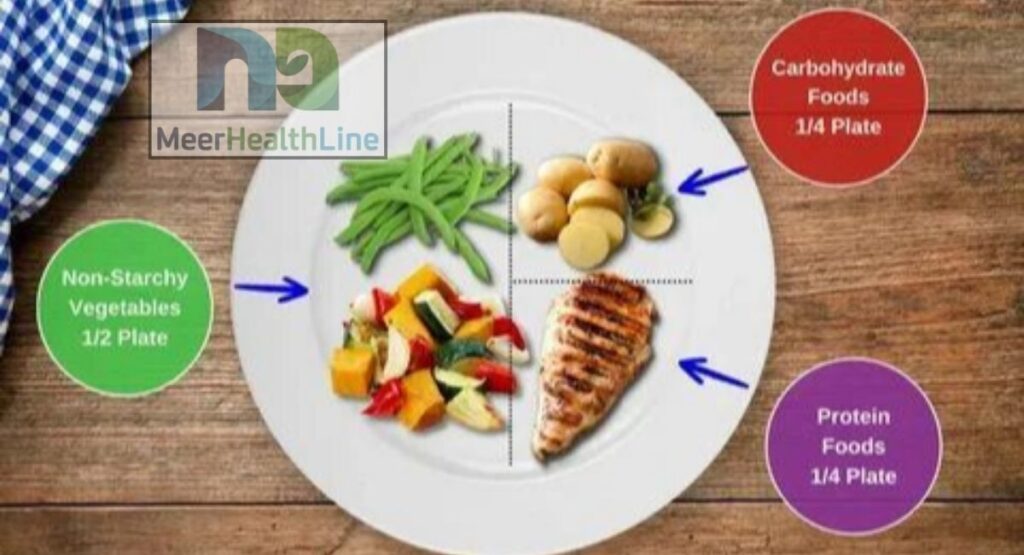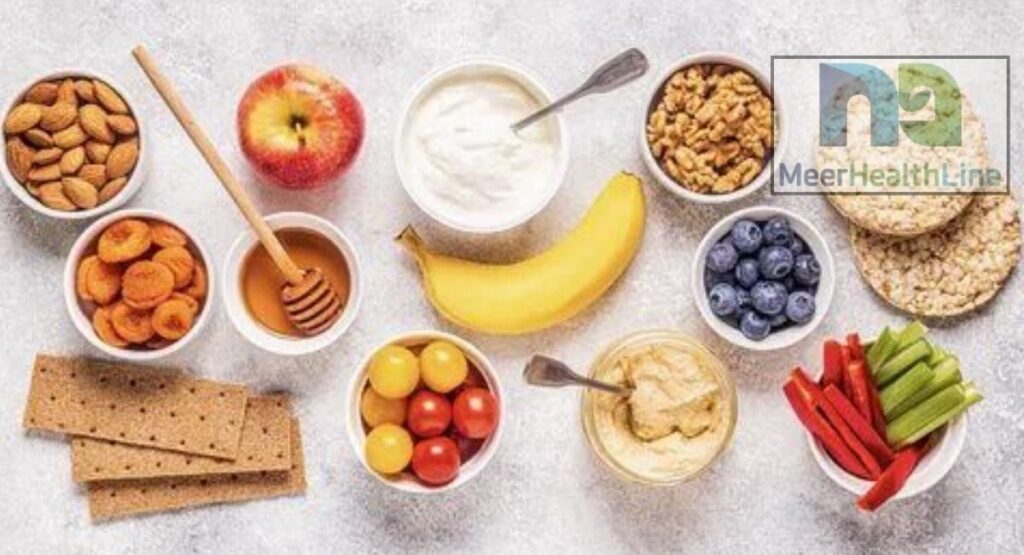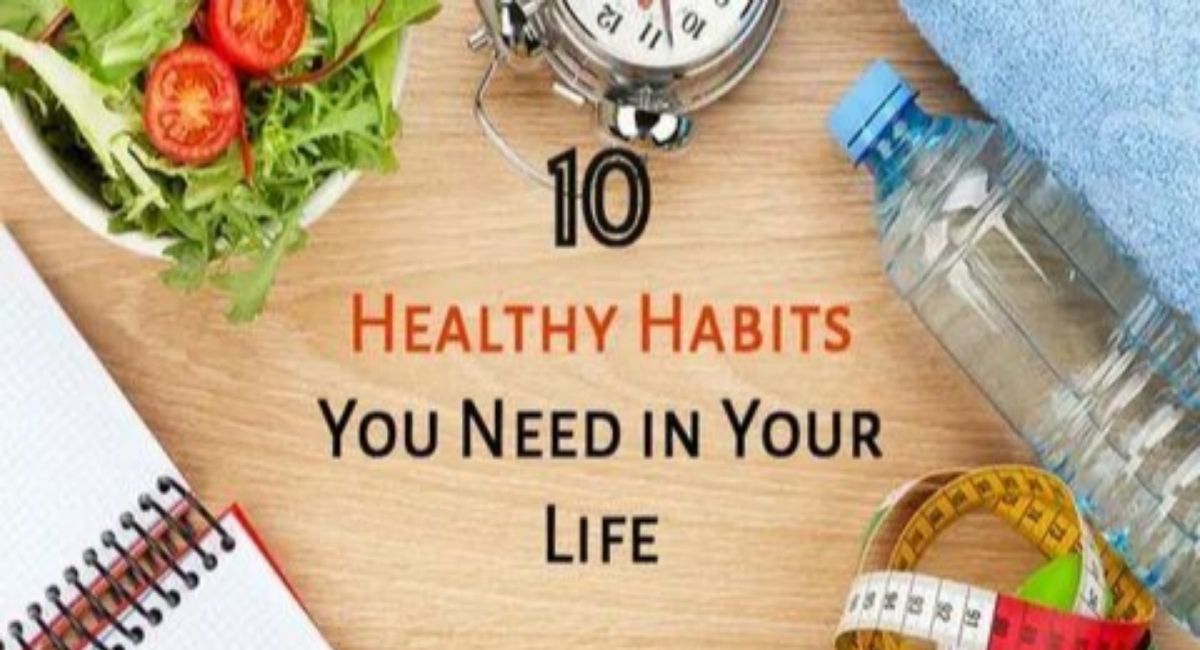Introduction
Now, I doubt that any decent human will disagree that healthy eating is extremely important as it helps to boost energy, improve immunity, concentration and minimizes the development of chronic diseases. However, healthy eating may also appear complicated, time-consuming, or even expensive to most people. The point is that, when you add style to your style of life, it does not mean that you can alter your entire routine in one night and abandon the favorite foods.
As a matter of fact, long-term wellness is anchored on small, continuous habits that are simple to sustain in the long run. This guide is actually intended to walk you through 10 useful evidence-based healthy eating habits that are simple, effective, and actually doable, including your most hectic days.

1:Have a healthy supported breakfast.
The healthy breakfast is not merely an everyday ritual but the cradle of your daily energy, attentiveness and metabolism. Even though many people like to talk about skipped breakfast (in the context of intermittent fasting cycles specifically), the evidence clearly points out that having breakfast, and having the right combination of nutrients at breakfast, will have a long-term impact on how you feel, energetic, and maintain your weight.
The Importance of healthy Breakfast
You wake up in a fasting state after having fasted overnight, your body has low blood sugar levels and low energy stores. A healthy breakfast can assist to:
- Balance blood glucose level Conditions procrastination, anger and sugar craving in future.
- Skip before work to rev up your metabolism- Eating early in the day revs your metabolism up so your body is burning calories throughout the day.
- Enhance cognitive performance -Sustains memory, concentration, and cognitive ability.
- Decrease overeating later: Skipping breakfast often produces a counterbalance, the outcome of which is the overeating of a larger meal or snack later.
- Encourage healthier food choices – The foundation of healthy eating is good food habits and the beginning of the day can be a conscious reminder on how to approach the rest of the day.
Frequent skipped breakfasts are associated with increased incidence of heart diseases, insulin resistance, and obesity-gaining-especially when replaced by high-energy snacks later in the day.
1.1.The Ingredients of a healthy Balanced Breakfast.
A good combination of breakfast will include complex carbohydrates, lean protein, healthy fats, and fibre. This combination will please you and fill you and provide energy during the day.
Each of these crucial parts can be outlined as follows:
| Component | Why It’s Important | Food Examples |
| Complex Carbs | energy and supply constant Trim sugar peaks | Oats, whole grain toast, sweet potatoes |
| Protein | Muscle and fullness Eggs | Greek yogurt, cottage cheese, tofu |
| Healthy Fats | Cognitive-Enhancing foods Brain-healthy Satiating | Avocado, nuts, chia seeds, olive oil |
| Fiber | helps digestion and control hunger | Berries, flaxseed, apples, whole grains |
1.2.Well-Rounded healthy Breakfasts
These are some rapid and healthy combinations you may experiment with:
- Oatmeal Bowl
- Almond milk oatmeal Topped with slices of banana, chopped walnuts, chia seeds and a drizzle of honey Why it works:
- Filled with fiber, omega-3s, and slow digestive carbohydrate to provide you energy in the morning.
1.3.Greek Yogurt Parfait
- Simple Greek yogurt T
- opped with berries, granola and flaxseeds
How it works: Free in carbohydrates and fats; in protein and probiotics; a superb option to promote the welfare of the gut and muscle repair.
1.4. Avocado Egg Toast
- Whole grain bread 1 slice
- Mashed avocado on top of poached/boiled egg
- Chilli flakes sprinkle and lemon
The reason it works: Balanced fats and protein and slow burning carbs to keep you going.
1.5. Smoothie Power Blend
- Frozen berries, spinach, banana
- Scoop of protein powder, or peanut butter
- Almond milk/ Greek yogurt
Why it works: Great when you are short of time; contains a very high quantity of antioxidants and nutrients.
1.6. Savoury Breakfeast Bowl
- Black beans, sauteed spinach, Quinoa
- Topped with Salsa and scrambled eggs
Why it works: Perfect combo of filling and nutritious foods. Hungry until lunch.
1.7.Breakfast Tips to a Daily Routine
- Plan the prep: Plan the previous evening to cut down on time; a load of smorgasbort and a smoothie box can be useful.
- Rise 10 minutes earlier: A slight adjustment will allow you to eat a healthy meal.
- Skip sugary cereals or pastries: They upload blood sugar and make you crash.
- Don t starve your body: When you do not feel hungry in the morning, have a light breakfast in between.
Final Thoughts
Having a balanced breakfast in the morning is not merely a habit, it is a promise that we take seriously to take care of ourselves on mornings. Your morning commute to work, getting the kids out early in the morning, or a morning workout, a balanced breakfast provides you with energy to excel.
You might however not be a breakfast person but otherwise simply stay true to small foods, high on fiber and protein to literally move into a healthier breakfast routine. Then it will take time, until your body adjusts and you will begin to feel more constant energy level, fewer cravings and overall ability to focus well throughout the day.

2.Drink the Right Amount of Water and Be healthy Hygdrated
Almost all bodily processes need at least some water: it cools the body, lubricates joints, keeps the body hydrated, digests and transports nutrients.
The benefits of being dry:
- Enhances energy and brain power
- Enhances healthy skin
- Strengthens the kidneys and works as detox.
- Helps in weight control (water may help one feel full)
The way to form the habit:
- Start your morning with a full glass of water
- Put a reusable water bottle with measurements
- Add lemon or cucumber flavor or mint flavor
- Write reminders in your phone every 2 hours
Recommended Amount: 2-3 liters of water per day (just about 8- 12 glasses considering the amount of activity and weather).

3.Plan out Your healthy Meals in Advance
Meal planning allows you to be more deliberate about the food you eat rather than consume something on the fly that tends to be unhealthy takeout or processed snack foods.
The reason it works:
- Saves money and time
- Minimises food wastage
- Aids in the management of calories and better nutrition
- Supports consistent eating patterns
Actionable tips:
- Do your weekly food planning on a Sunday
- Batch-cook the staples (grains, proteins veggies)
- Pack lunches and make snacks to go
- Make a grocery list, and work off of it
Smaller steps such as 30 minutes of planning can make a big difference in improving your weekly nutrition.

4.Healthy Vegetables Half Your Plate
Vegetables are rich in the essential vitamins, minerals, antioxidants, and fiber, which most individuals fail to consume in the recommended quantities.
Why this habit matters:
- Good source of nutrients, few calories
- Fiber enhances digestibility and filled up appetite
- Antioxidants limit diseases and inflammation
How to implement:
- Easy add-ons Roast a sheet of vegetables
- Add some spinache, kale or zucchini to the smoothies
- Pasta, rice or soup with greens
- Try dipping arrangements, such as hummus or tzatziki on raw vegetables to make them more interesting
Diversity is the word: alternate your vegetables and attempt eating a rainbow of colors every day.

5.Mindful Healthy Eating
Mindful eating is all about presence when taking a meal it is not about multi-tasking or accelerating. It makes you eat mindfully and purposefully.
What are the benefits of mindful eating:
- Avoids over consumption of food
- Enhances enjoyment and satisfaction
- Establishes a better relationship with food
- Enhances digestion
Picking:
- Dim lights (spouse, social media)
- Eating smaller bites and chewed thoroughly
- Take a pause between bites and evaluate the amount of hunger/satiety
- Appreciate the food on your plate based on the textures and tastes
Mindful eating can in the long term make you more aware of your body hunger signals and help you avoid stressful or emotional eating.

6.Choose Whole over Processed Foods
The whole foods are more natural and less processed.They are usually more nutritious and fewer in further-added sweeteners, sodium, and toxic fat.
Whole foods examples include:
- Fruits and vegetables
- Whole grain (quinoa, oats and brown rice)
- Seeds, nuts and legumes
- New meat, fish, and poultry
Processed foods which should be minimized:
- Sugary cereals and snacks
- Instant noodles and canned soups
- Frozen meals and takeout
- Soda and sweet drinks
Begin by swapping a single processed food a day with an unprocessed food choice.

7.Practise with Portion Control
You do not have to restrict yourself, but be more aware of what you are eating. Portion control is also helpful in the long run to stay slim and healthy and evade the trap of unintentional overeating.
Smart portion habits:
- Use smaller plates and bowls
- Read food labels for serving sizes
- Avoid eating directly from packages
- Serve your food, then step away from the kitchen
Visual cues:
- Protein = size of your palm
- Carbs = size of a cupped hand
- Fats = size of your thumb
- Veggies = size of both hands cupped together

8. Keep Healthy Snacks Available
Snacks are not horrible- it is the snack that counts. When there are healthy snacks within reach, you will not automatically grab on to chips, cookies or candy in case you are feeling drained out.
Healthy snacks:
- Trail mix nuts
- Apple slices with almond butter
- Greek yogurt with honey
- Hard-boiled eggs
- Veggie sticks with hummus
- Cottage cheese and fruit
Have your snacks ready in portions in containers, or packaged in order to avoid consuming too much.

9.Eating at Fixed Times
The issue is always solved by a meal: to maintain sugar levels in the blood, suppress hunger, and stimulate the metabolism. Skipping meals can lead to overeating, mood swings and fatigue.
How to implement:
- Eat every 3&4 hours (3 meals and 1-2 snacks)
- Avoid skipping breakfast or delaying the meals too late
- Give reminders on mealtime where necessary
- Set an established time to have dinner to avoid indiscriminate snacking late at night Rhythm is what your body lives on.
Frequent meals are essential to energy and digestive health.
10.Treats are not Eat a Sin (In Moderation)
The key to healthy eating is sustainability, not excluding a favorite treat once in a while. Restrictive eating may result in grumpy moods and infringement of food relations.
Mindful indulgence tips:
- There is no such thing as good or bad foods
- Get your sweets and take time to enjoy it
- Use one-serving portions
- Prefer quality to quantity (dark chocolate instead of milk bar, home-made instead of packed)
The balance is not synonymous with starvation, it is all about allowing yourself to indulge in food without guilt.
✅ Conclusion
You neither need a restrictive diet nor a fancy diet to consume healthily. This sustainable health strategic rule recognizes that the essence of sustainable health lies in creating sustainable pleasurable health habits that take care of your body and mind.. Take it easy- select any 2 or 3 habits out of this list and stick with it over the next few weeks. When those become established in your routine, add on to them. Gradually, these habits will seem natural to you, making you live and feel better daily. Eating healthy is not temporary. It is a life long personal investment.
Meta Description (SEO)
Bored with fad diets? Find out 10 healthful tips to eat on a regular basis. Science-based, easy advice on how to stay healthy over the long term and get actual results.

Welcome to Meer Health line. I am Muhammad Naeem, an AI-Povered SEO, and Content writer with 4 years of experience.
I help website rank higher, grow traffic, and look amazing. My goal is to make SEO and web design simple and effective for everyone.
Let’s achieve more together!

